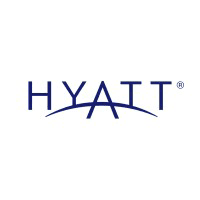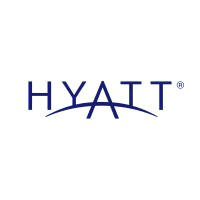
LivSmart Studios by Hilton
How much does LivSmart Studios by Hilton cost?
Initial Investment Range
$15,424,593 to $21,497,662
Franchise Fee
$240,112
You will establish and operate a LivSmart Studios by Hilton™ hotel under a Franchise Agreement with us.
Enjoy our partial free risk analysis below
Unlock the full risk analysis to access 9 more categories covering 100+ risks.
LivSmart Studios by Hilton March 30, 2025 FDD Risk Analysis
Free FDD Library AI Analysis Date: July 16, 2025
DISCLAIMER: Not Legal Advice - For Informational Purposes Only. Consult With Qualified Franchise Professionals.
Franchisor Stability Risks
Start HereDisclosure of Franchisor's Financial Instability
Low Risk
Explanation
This risk was not identified. The audited financial statements in Exhibit C for the franchisor, Hilton Franchise Holding LLC (Hilton FH), show a highly profitable and financially stable company. It reported significant net income and positive member's equity for the fiscal year ending in 2024. Therefore, franchisor financial instability does not appear to be a current risk. Generally, a weak franchisor can jeopardize your investment by failing to provide support.
Potential Mitigations
- An accountant should still review the franchisor's financial statements annually to monitor for any changes in financial health.
- It is wise to have your attorney review any parent company guarantees or other financial assurances mentioned in the FDD package.
- Working with a business advisor can help you develop contingency plans in case franchisor support levels change over time.
High Franchisee Turnover
Low Risk
Explanation
This risk was not identified. Item 20 tables show zero franchised outlets have terminated, not renewed, or otherwise ceased operations. This is because LivSmart Studios by Hilton is a new franchise system with no operating history as of the end of 2024. While not technically high turnover, the lack of operating history is a distinct and significant risk. Generally, high turnover can signal systemic problems in a mature system.
Potential Mitigations
- Once the system has an operating history, your attorney can help you prepare questions for former franchisees listed in future versions of Item 20.
- An accountant should be engaged to analyze future Item 20 data to calculate turnover rates and compare them to industry benchmarks.
- Seeking guidance from a business advisor can help you interpret the reasons for any future franchisee departures from the system.
Rapid System Growth
Medium Risk
Explanation
The franchise system is new but shows a large pipeline of 73 signed agreements for hotels that are not yet open, indicating a plan for very fast growth. This creates a risk that the franchisor's support infrastructure, including training and operational assistance, may not scale effectively to meet the needs of all new franchisees simultaneously. A lack of adequate support during the critical opening phase could negatively impact your business's performance.
Potential Mitigations
- A business advisor can help you evaluate the franchisor's specific plans to scale their support staff and infrastructure to match projected growth.
- Your attorney should carefully review the franchisor's specific, contractually enforceable support obligations as outlined in Item 11.
- Monitoring the franchisor's financial statements in future years with an accountant can provide insight into their investment in support infrastructure.
New/Unproven Franchise System
High Risk
Explanation
The LivSmart Studios by Hilton brand is a new, unproven franchise system. As disclosed in Item 1 and confirmed in Item 20, there were no hotels operating under this brand at the end of 2024. This presents a significant risk because the business model, brand recognition, and operational support systems lack an established track record. The success of this venture depends entirely on the franchisor's ability to launch this new concept successfully.
Potential Mitigations
- A thorough investigation of the specific market demand for this new extended-stay concept should be conducted with your business and real estate advisors.
- Your attorney should carefully scrutinize the franchisor's specific, enforceable support commitments during the pre-opening and initial operational phases.
- Given the higher risk, having your accountant create conservative financial projections that account for a potentially slower ramp-up period is critical.
Possible Fad Business
Low Risk
Explanation
This risk was not identified. The business model is a midscale extended-stay hotel, which is an established segment of the lodging industry and not based on a short-term trend. While Hilton's specific brand execution is new, the underlying business concept is not considered a fad. Generally, investing in a fad business carries the risk that consumer interest could decline rapidly, leaving you with long-term obligations for an outdated concept.
Potential Mitigations
- A business advisor can help you research the long-term trends and competitive landscape of the extended-stay hotel market in your specific area.
- Your financial advisor should review industry reports to confirm the stability and growth prospects of this lodging segment.
- When reviewing any business, it is wise to consult your attorney regarding the length of contractual obligations versus the expected lifecycle of the business concept.
Inexperienced Management
Low Risk
Explanation
This risk was not identified. The management team described in Item 2 consists of highly seasoned executives from Hilton Worldwide, such as the CEO and CFO, who have extensive long-term experience managing large-scale hotel franchise systems. Inexperienced management does not appear to be a risk. Generally, a weak or inexperienced leadership team can lead to poor strategic decisions and inadequate support for franchisees, increasing the potential for business failure.
Potential Mitigations
- It is always prudent for a business advisor to help research the background and track record of key brand-level managers.
- Your attorney can help you formulate questions for the franchisor about the team's specific experience with new brand launches.
- When evaluating any franchise, speaking with existing franchisees about the quality and responsiveness of management is a key due diligence step.
Private Equity Ownership
Low Risk
Explanation
This risk was not identified. The FDD does not indicate that the franchisor is owned by a private equity firm; Hilton Worldwide Holdings Inc. is a publicly traded company (NYSE: HLT). In general, private equity ownership can introduce risks related to a focus on short-term returns, which may lead to reduced franchisee support, increased fees, or a quick sale of the franchise system, potentially to a less favorable operator.
Potential Mitigations
- A business advisor can help you research the ownership structure of any franchisor and the track record of its principal owners.
- Your attorney should always review the franchisor's rights to assign the franchise agreement and explain the potential implications of a system sale.
- It is wise to ask current franchisees about any changes in system direction or support following a change in ownership.
Non-Disclosure of Parent Company
Low Risk
Explanation
This risk was not identified. Item 1 clearly discloses the parent companies, Hilton Domestic Operating Company Inc. and Hilton Worldwide Holdings Inc. Furthermore, the FDD includes the audited financials for the franchisor entity, Hilton Franchise Holding LLC, as required. There is no indication of an attempt to obscure the parent company or its financial condition. Generally, non-disclosure of a parent company can hide financial weaknesses or other risks material to your investment decision.
Potential Mitigations
- An accountant's review of the provided financials is essential to confirm the franchisor's stability.
- Your attorney should verify the corporate structure and ensure any guarantees from a parent company are explicit and enforceable.
- Engaging a business advisor can help assess the operational relationship between the franchisor and its parent company.
Predecessor History Issues
Low Risk
Explanation
This risk was not identified. Item 1 provides a detailed history of Hilton's various brands and their predecessor entities. The disclosure appears comprehensive and does not seem to obscure any relevant predecessor history. Generally, an incomplete disclosure of a system's predecessors could hide a history of litigation, bankruptcy, or high franchisee turnover, preventing you from seeing a full picture of the brand's past challenges.
Potential Mitigations
- It is prudent to have your attorney review the predecessor information in Items 1, 3, and 4 of the FDD for completeness.
- A business advisor can help you conduct independent research on a franchisor's predecessors if there are any concerns.
- Speaking with long-term franchisees who operated under a predecessor can provide valuable historical context.
Pattern of Litigation
Medium Risk
Explanation
Item 3 discloses several pending class-action lawsuits against the parent company, Hilton Worldwide, alleging antitrust violations related to price-fixing through revenue management software. While Hilton FH is not always the named defendant, these suits involve the broader Hilton system. A pattern of significant litigation, particularly involving claims of systemic wrongdoing like antitrust, could create brand reputational damage and indicates a potentially litigious environment that might affect franchisees indirectly.
Potential Mitigations
- A thorough review of all litigation disclosed in Item 3 with your franchise attorney is critical to understand the potential risks and implications.
- It is wise to have your attorney conduct independent research on the current status and potential outcomes of these class-action lawsuits.
- Discussing the disclosed litigation with your business advisor can help assess its potential impact on brand reputation and operations.
Disclosure & Representation Risks
Example Risk: Franchisee Financial Obligations
Blue Risk
Explanation
This risk involves the financial obligations that a franchisee must meet, including initial fees, ongoing royalties, and other required payments. Understanding these obligations is crucial for long-term success.
Potential Mitigations
- Carefully review the Franchise Disclosure Document (FDD) and consult with a franchise attorney to fully understand all financial commitments before signing.
- Conduct regular risk assessments
- Implement monitoring and reporting systems
Unlock Full Risk Analysis
Purchase the complete risk review to see all 102 risks across all 10 categories.
Financial & Fee Risks
Example Risk: Franchisee Financial Obligations
Blue Risk
Explanation
This risk involves the financial obligations that a franchisee must meet, including initial fees, ongoing royalties, and other required payments. Understanding these obligations is crucial for long-term success.
Potential Mitigations
- Carefully review the Franchise Disclosure Document (FDD) and consult with a franchise attorney to fully understand all financial commitments before signing.
- Conduct regular risk assessments
- Implement monitoring and reporting systems
Unlock Full Risk Analysis
Purchase the complete risk review to see all 102 risks across all 10 categories.
Legal & Contract Risks
Example Risk: Franchisee Financial Obligations
Blue Risk
Explanation
This risk involves the financial obligations that a franchisee must meet, including initial fees, ongoing royalties, and other required payments. Understanding these obligations is crucial for long-term success.
Potential Mitigations
- Carefully review the Franchise Disclosure Document (FDD) and consult with a franchise attorney to fully understand all financial commitments before signing.
- Conduct regular risk assessments
- Implement monitoring and reporting systems
Unlock Full Risk Analysis
Purchase the complete risk review to see all 102 risks across all 10 categories.
Territory & Competition Risks
Example Risk: Franchisee Financial Obligations
Blue Risk
Explanation
This risk involves the financial obligations that a franchisee must meet, including initial fees, ongoing royalties, and other required payments. Understanding these obligations is crucial for long-term success.
Potential Mitigations
- Carefully review the Franchise Disclosure Document (FDD) and consult with a franchise attorney to fully understand all financial commitments before signing.
- Conduct regular risk assessments
- Implement monitoring and reporting systems
Unlock Full Risk Analysis
Purchase the complete risk review to see all 102 risks across all 10 categories.
Regulatory & Compliance Risks
Example Risk: Franchisee Financial Obligations
Blue Risk
Explanation
This risk involves the financial obligations that a franchisee must meet, including initial fees, ongoing royalties, and other required payments. Understanding these obligations is crucial for long-term success.
Potential Mitigations
- Carefully review the Franchise Disclosure Document (FDD) and consult with a franchise attorney to fully understand all financial commitments before signing.
- Conduct regular risk assessments
- Implement monitoring and reporting systems
Unlock Full Risk Analysis
Purchase the complete risk review to see all 102 risks across all 10 categories.
Franchisor Support Risks
Example Risk: Franchisee Financial Obligations
Blue Risk
Explanation
This risk involves the financial obligations that a franchisee must meet, including initial fees, ongoing royalties, and other required payments. Understanding these obligations is crucial for long-term success.
Potential Mitigations
- Carefully review the Franchise Disclosure Document (FDD) and consult with a franchise attorney to fully understand all financial commitments before signing.
- Conduct regular risk assessments
- Implement monitoring and reporting systems
Unlock Full Risk Analysis
Purchase the complete risk review to see all 102 risks across all 10 categories.
Operational Control Risks
Example Risk: Franchisee Financial Obligations
Blue Risk
Explanation
This risk involves the financial obligations that a franchisee must meet, including initial fees, ongoing royalties, and other required payments. Understanding these obligations is crucial for long-term success.
Potential Mitigations
- Carefully review the Franchise Disclosure Document (FDD) and consult with a franchise attorney to fully understand all financial commitments before signing.
- Conduct regular risk assessments
- Implement monitoring and reporting systems
Unlock Full Risk Analysis
Purchase the complete risk review to see all 102 risks across all 10 categories.
Term & Exit Risks
Example Risk: Franchisee Financial Obligations
Blue Risk
Explanation
This risk involves the financial obligations that a franchisee must meet, including initial fees, ongoing royalties, and other required payments. Understanding these obligations is crucial for long-term success.
Potential Mitigations
- Carefully review the Franchise Disclosure Document (FDD) and consult with a franchise attorney to fully understand all financial commitments before signing.
- Conduct regular risk assessments
- Implement monitoring and reporting systems
Unlock Full Risk Analysis
Purchase the complete risk review to see all 102 risks across all 10 categories.
Miscellaneous Risks
Example Risk: Franchisee Financial Obligations
Blue Risk
Explanation
This risk involves the financial obligations that a franchisee must meet, including initial fees, ongoing royalties, and other required payments. Understanding these obligations is crucial for long-term success.
Potential Mitigations
- Carefully review the Franchise Disclosure Document (FDD) and consult with a franchise attorney to fully understand all financial commitments before signing.
- Conduct regular risk assessments
- Implement monitoring and reporting systems
Unlock Full Risk Analysis
Purchase the complete risk review to see all 102 risks across all 10 categories.











